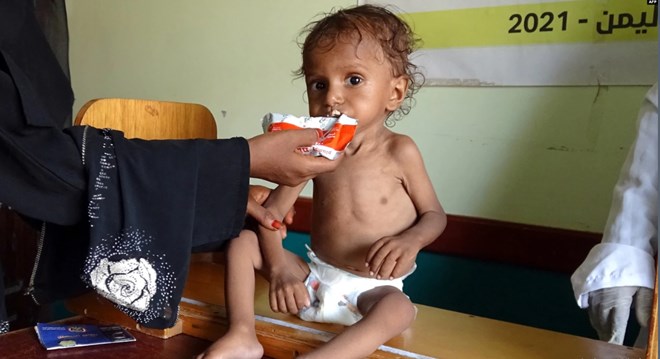GENEVA, Switzerland — The United Nations announced on Thursday that it has released $100 million from its Central Emergency Response Fund to assist millions of people in South Sudan, Somalia, Sudan, Nigeria, Kenya, Ethiopia, and Yemen who are suffering from starvation.
Because of armed war, drought, and economic uncertainty exacerbated by COVID-19, millions of people in these seven nations are unable to feed themselves and their families.
The United Nations Office for the Coordination of Humanitarian Affairs also warned that the war in Ukraine’s spillover effects could push millions of people closer to hunger.
Yemen, South Sudan, and Somalia are already in what the UN terms a Phase 5 emergency, or catastrophic hunger or famine, according to OCHA spokesperson Jens Laerke.
“In other countries, such as Nigeria, Sudan, and Kenya, as well as Ethiopia, we have millions of individuals who are are just one step away from this catastrophic phase,” he said. “And we have to avoid that they end up in that phase because that is where people literally die from starvation and disease on our watch. If we have to avoid that, we need to act now.”
Ukraine and Russia are renowned as the world’s “breadbasket,” providing about a third of all wheat and barley exports. According to the World Food Program, the conflict in Ukraine will exacerbate world famine.
According to the report, the violence is disrupting food and energy markets, as well as putting food costs out of reach for people.
The United Nations began requests for $43 billion for each of the seven countries a few months ago. Only 6.5 percent of the total has been funded, according to Laerke. He stated that the United Nations recognizes that the $100 million set aside for emergency support would not solve the issues that these countries are experiencing.
“However, it does close a gap.” It does, however, fill a gap that is immediate, critical, and unavoidable necessary if we want to save lives in these countries,” he said. “And that is the function of Central Emergency Response Fund. It is kind of a provider of last resort.”
Laerke added that U.N. agencies hope donors will understand the situation facing these countries and support their humanitarian operations. If not, he said, drastic cuts will have to be made in critical projects.

